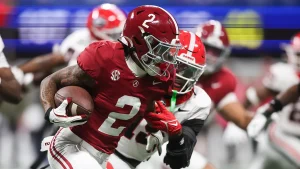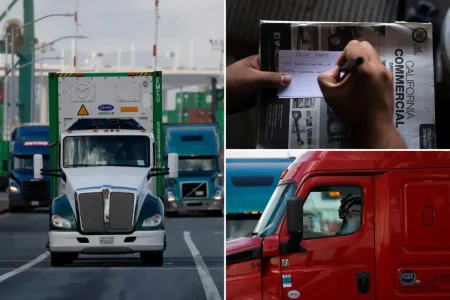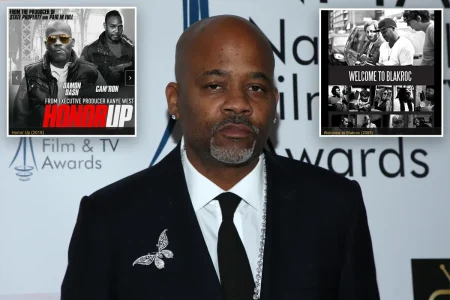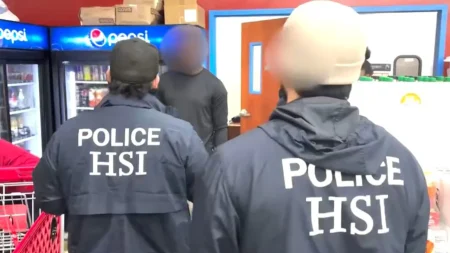Jersey City Mayoral Race: A Close Contest Amid Rising Tensions
As Jersey City’s mayoral election approaches, three leading candidates find themselves locked in an extremely tight race, with personal attacks and political mudslinging intensifying in the final days of the campaign. Former New Jersey Governor James McGreevey holds a slight edge at 23% in recent polls, narrowly leading Hudson County Commissioner Bill O’Dea and downtown Jersey City Councilman James Solomon, both polling at 20%. The contest represents a fascinating crossroads for New Jersey’s second-largest city, with each candidate bringing a distinct background and vision for the future, while also carrying their own political baggage.
McGreevey’s campaign marks a remarkable attempt at political redemption. His name remains synonymous with one of New Jersey’s most dramatic political downfalls—his 2004 resignation as governor following his public coming out as a “gay American” amid a sexual harassment scandal involving a male aide. Nearly two decades later, McGreevey is positioning himself as an experienced leader who can unite diverse constituencies, pointing to his fundraising ability across political divides as evidence he can effectively advocate for Jersey City. His campaign has emphasized his personal growth and public service since leaving office, though opponents continually remind voters of his controversial exit from the governorship.
Bill O’Dea represents the established Hudson County political machine, having served on the Hudson County Board of Commissioners since 1997 and currently in his eighth term. A lifelong Jersey City resident, O’Dea’s campaign highlights his deep roots in the community and extensive government experience. However, his lengthy tenure in Hudson County politics—an area historically known for political corruption—has made him vulnerable to association with controversial figures. Solomon’s campaign has particularly targeted O’Dea’s past connections to disgraced Senator Bob Menendez and former Jersey City Board of Education president Sudhan Thomas, who recently received probation for corruption. O’Dea’s team has pushed back vigorously against these attacks, dismissing them as desperate measures from a candidate struggling to connect beyond his “wealthy Downtown base.”
James Solomon, representing downtown Jersey City on the council since 2017, has positioned himself as the reform candidate promising to “clean up the mess at city hall.” His district has experienced tremendous growth and development in recent years, though this prosperity has brought challenges including rising rents and property prices that threaten to displace longtime residents and businesses. Solomon has run an aggressive campaign, attacking both McGreevey for accepting donations from New York Republicans and O’Dea for his connections to controversial Hudson County political figures. His campaign reflects the progressive wing of Jersey City politics, appealing particularly to newer residents in gentrified neighborhoods, though his opponents characterize him as disconnected from the city’s diverse communities outside downtown.
The intense three-way contest has evolved into a battle not just over policy differences but over character and associations. Solomon’s attacks on O’Dea regarding connections to Menendez (who O’Dea once called a “trailblazer” and “icon” before Menendez’s gold bar scandal) and former Councilman Philip Kenny (who served as O’Dea’s chief of staff for eight years before pleading guilty to accepting a $5,000 bribe) have escalated tensions. O’Dea’s campaign has countered by noting that Solomon himself has appeared alongside Kenny at public events and suggesting these attacks reflect desperation rather than principle. Meanwhile, McGreevey has defended his diverse donor base as evidence of his broad appeal, while both opponents subtly remind voters of his controversial history.
The outcome remains highly uncertain, with several additional candidates trailing in the polls, including former Jersey City Board of Education president Mussab Ali, City Council President Joyce Watterman, police officer Christina Freeman, and musician Kalki Jane-Rose. If no candidate secures 50% of the vote, the city will hold a runoff election on December 2nd. The election comes as incumbent Mayor Steven Fulop exits after losing his bid for the Democratic gubernatorial nomination, leaving Jersey City at a pivotal moment. Whoever emerges victorious will face significant challenges: managing continued development while addressing affordability concerns, improving infrastructure in a rapidly growing city, and navigating the complex political landscape of Hudson County—all while attempting to restore public trust in a region where political corruption scandals have been all too common.












